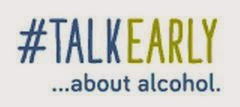When I was 14 years old, I made a commitment not to drink in high school.
At the time, I wasn’t really going out on a limb. Alcohol was not a part of my life in any way. My upbringing was very conservative and religious. My parents didn’t drink and I was taught that drinking was always wrong, always.
My commitment not to drink was like deciding to remain a virgin even though I never dated, and never spent time around boys at all. At that age, my alcohol abstinence commitment was not that difficult.
Then I went to a New Year’s Eve party at a friend’s house. As the clock approached midnight and everyone prepared for the big countdown, this friend’s mom began handing out glasses of champagne. REAL alcohol. It was a small amount, it was supervised, and it was something special because it was New Year’s Eve. We were only to take a sip as we raised a toast to the new year.
Despite my no-alcohol pledge, I felt a tremendous amount of pressure to drink that champagne…so I did. I crossed a boundary.
Once that boundary was behind me, the distance between me and alcohol disappeared. From that day forward, I began drinking alcohol.. Despite how I’d been raised and despite what my parents had taught me about alcohol, I became a pretty regular high school drinker. (That’s going to be a hard conversation to have with my kids some day.)
It started because a trusted adult gave me alcohol and told me it was OK, just that once. I think of that New Year’s Eve every time I hear a parent talking about how responsible alcohol use begins at home, and that allowing kids “just a sip” is a good way to expose them to alcohol in a controlled, safe environment. After all, in 29 U.S. states it’s fully within the law for minors to drink in their home, under parental supervision.
That’s what happened with me, but it had the opposite effect: Rather than showing me the value of moderation or even turning me off of alcohol (“yuck, that’s gross”), it gave me a sense of it being no big deal. It opened the door and set me off on a path toward drinking that went way beyond a toast on New Year’s Eve. It led to me getting drunk. On purpose.
Sometimes drinking under parental supervision does more harm than good.
As I’ve mentioned before, alcohol is not a huge part of our adult lives these days, but it is occasionally present. Sometimes we drink around our kids. They see us practicing moderation. We talk about it a lot. But Mark and I have decided we don’t want to allow our kids to have alcohol at home before they are of legal age. Not under our supervision. Not even just a sip. Not even a sip of something we are sure they won’t like.
Why? Because it sends mixed messages. California is NOT a state where it’s within the law for parents to serve alcohol to their children at home. We have explicitly told them it’s against the law for them to drink. So if we were to offer our kids a sip, we would be doing something that they know is against the law. Their takeaway might be that it’s sometimes OK to break the law. That the rules don’t apply to them.
I don’t want to teach that to my kids. I don’t want them thinking they are above the law. I don’t want them to have a low view of authority. Morality is complicated, and ethical gray areas are something that adults learn to deal with. But as children and even early teens, I’d prefer that they see morality as right and wrong, period. That’s what their developing brains are best equipped to handle. I don’t want them to think we have to keep some laws, but it’s OK to ignore others. I want them to think, “This is what the law says, and we’re not going to break the law.”
The holidays are a time when families gather together and alcohol is served. Kids will find themselves next to a trusted adult—a grandfather or aunt—and maybe they’ll be offered a sip.
What will you say? Do you allow your kids to sip alcohol? Why or why not?


